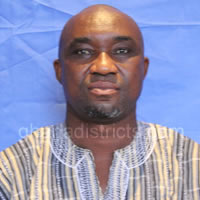Local Governance
The Assembly is the highest administrative and political authority mandate with the responsibility of formulating and implementing development plans, programmes and projects geared towards the attainment of sustainable development of the populace. Its mandate, operations and powers are generally derived from the Local Government Act (Act 462) of 1993.
The Chief Executive who is also the chair for the Executive Committee heads the Office of the Assembly. The Assembly has 11 integrated decentralized departments and the activities of these decentralized are coordinates to Assembly to ensure harmonious co-existence.
Decentralised Departments
Dist. Educ. Directorate, Dist. Health Mgt. Team, Dist. Directorate of Agric. Dist. T & C Planning, Feeder Roads Community Development, Social Welfare, Rural Housing & Cottage Ind., Co-operatives, Public Works Dept., Parks & Gardens, Forestry, NADMO, Fire Service, NFED, Births & Deaths, Ghana Library Board
These Departments are manned by National Youth Council Technocrats and they provide specialized and technical services to the Assembly. Over the years, the main challenge that runs through all these departments have been inadequate funds to implement their planned activities and programmers. The Assembly exercises deliberative, legislative and executive functions in the District. The Presiding Member who is elected from amongst the Assembly members’ chairs Assembly meetings.
Town/Area Councils
Establishment of Urban/Town/Area councils is clearly stipulated in the Legislative Instrument (L.I 1855) that that creates MMDAs. Kassena Nankana Municipal have one (1) Town council (Navrongo) and five (5) Area councils at Kologo, Naaga, Pungu, Mayoro and Doba. Their main functions include revenue Hon.
Emmanuel Andema (DCE) mobilization, implementation of policies at the local level and community mobilization for popular participation in decision making and identification of developmental needs and organization of community members for communal labour. The decisions of these councils reach the Assembly through the Assembly members in their respective areas. The major problems facing these establishments have always been:
Constituencies within the Municipality
The Kassena Nankana had one constituency which is the Navrongo Central Constituency. This constituency consists of all the communities such as Mayoro Namolo, Akurugu Dabo, Pinda etc. Hon. Mark Wonyogo is the current Member of Parliament for the constituency.
THE MUNICIPAL PLANNING AND COORDINATING UNIT (MPCU) THE MANAGEMENT TEAM
Management Team of the Assembly is composed of the Municipal Chief Executive (MCE as the Chairman) The Coordinating Director (MCD) and his two deputies; Heads of units within the central administration. Management holds monthly meetings for deliberations on the Assembly.
The DPCU is the ’heart’ of the Assembly. The unit coordinates all the arms of the district. It is headed by the Coordinating Director. Other members of the committee are the Planning Officer, Budget Officer, Finance Officer and the heads of the departments for the following sectors; Health, Education, Agric, Social Welfare, Community Development etc.
Good Governance involves the efficient processes and system through which administrative functions are carried out. It ensures that both the governor and the governed abide by the rules of the law. Institutional and administrative set-up exist to perpetrate the rule in the district.
The Municipal Assembly
The Assembly being the highest administrative and political authority in the district is charged with the responsibility of formulating and implementing development plans, programmes and projects.
The General Assembly
The General Assembly comprises 78 members elected and appointed members in which the Chief Executive (MCE) and 2 Members of Parliament (MPs) from 2 different constituencies are part, though they have no voting rights. From among the members of the Assembly at least two-thirds approval is needed to appoint a Presiding Member, who chairs meetings and committees of the Assembly.
Executive Committee
The Executive Committee operates through sub-committees that are statutory or instituted by the Assembly itself.
These include:
- Finance and Administration Subcommittee
- Works Subcommittee
- Development Planning Subcommittee
- Agriculture Subcommittee
- Justice and Security Subcommittee
- Health Subcommittee
- Women and Children Subcommittee
- Environmental Protection Subcommittee
- Complaints Subcommittee
The departments do not collaborate effectively with the Assembly because of the vertical reporting relationship to their mother-departments – a bottleneck of decentralization.
Sub-Structures – Urban and Area Councils
The District’s Urban, Town and Area Councils are not effectively functioning, due to logistical constraints and lack of funds to recruit and pay council staff. Two out of the eight (8) Areas Councils are still without office accommodation. However, efforts are being made to make the lower structures functional.
Traditional Authority
There are ten (10) Paramounties in the District namely; Navrongo, Paga, Kologo, Naaga, Mirigu, Sirigu, Chiana, Katiu, Kayoro and Nakong. Every paramountcy has a ‘tindana’ who is the main custodian of the land, relates the ancestral traditions, which he holds in trust for the people.
Social Organization
Religious organizations such as Catholic Church (in the majority), Methodist Church, Presbyterian Church, Anglican Church, Pentecost Church, Assemblies of God and the Mohammedans (Islam) perform some social developmental functions.
The Catholic Church, for instance, has been assisting in the educational infrastructure and also through its CRS programmes.
Decentralized Departments
The decentralized departments also help with the governance in the District, though they have not been fully integrated into the planned district departments. Relationship between the decentralized departments is in a loose form as they still take instructions from their regional and national heads of department.
The decentralized departments include;
- Ghana Education Service
- Ghana Library Board
- Public Works Department
- Department of Feeder Roads
- Forestry Department
- Dept. of Community Development Co-operatives
- Ghana National Fire Service
- Town & Country Planning Department
- Dept. of Social Welfare
- Meteorological Services
- Birth and Death Registry
- Cont. & Acct. Gen. Dept.
- Ministry of Food & Agriculture
- Information Services Dept.
Other institutions as the Police, the Courts, CHRAJ, also work effectively to ensure security, justice and good governance.Governance is yet to reach the doorstep of the majority, especially, isolated poor populace as a result of ineffective functioning of the sub-structures.
This has largely impacted on the majority’s inability to access information on governmental issues and the activities of other livelihood service – deliverers including NGOs and institutions working in the district. The consequence of this is that a good majority of the people lack adequate information on existing safety net packages and other important developmentally quantifiable services rendered in the district.
In conclusion, it can be realized that ignorance and lack of information coupled with the inadequacy of available livelihood enhancing resources in the district has generated and perpetuated poverty over the years.
Law Enforcement
The importance of law enforcement as one that ensures security of desired development in the light of poverty phenomena cannot be ruled out in any meaningful plan. Currently, there is a police station with a barracks attached in Navrongo and police posts at Paga, Chiana and Sirigu. There are also police check points located at various corners of the district, particularly on the trunk and feeder roads, manned by police officers.
There are some neighborhoods’ watchdogs committee members who operate in the urban settlements, periodically patrolling to fish out and/or prevent lawbreakers. Also in existence are cadet regiments in some schools including St. John Bosco’s Training College and the Navrongo Secondary School who help in keeping sanity during occasions including Independence Day celebrations and upon arrivals of dignitaries in the Municipality.
There is a prison house, which keeps inmates from the Municipality and beyond located in Navrongo. However, in the local settings, traditional arrangements through indigenous practices are made to ensure peace and order among folks.
Judiciary
There exists in operation, a modern tribunal court. Although located in Navrongo, it serves the entire populace as people come from far and near to register and file for the settlement of their disputes, ranging from theft, assault, encroachment on land and other non-movable properties, among others.
Cases are consequently referred to the appropriate quarters upon realization that such falls outside the jurisdiction of the tribunal. As a characteristic of the judiciary system in the country, cases stay for long without being heard or settled, hence breeding less confidence in the court system, since justice delayed is justice denied.
The most common dispute settling mechanism especially among the majority of the populace who are illiterates and traditionally minded is channeled through or resort to the traditional adjudication system, spread all over. Family heads, clan heads, sub-chiefs and elders, other divisional and paramount chiefs with their elders are used to effect such court system.
Apart from their lack of confidence in the modern adjudicating systems, which boosts the use of these traditional court systems, most cases, which lack clear interpretation in the statutory books, are settled through the traditional system. Cases are however, referred from the lower levels (e.g., family heads) to the high, thus to the paramountcy levels according to the gravity of the complaints
Problems facing some of the Councils
- Lack of infrastructure for some of the area councils
- Irregular meetings
- Lack of logistics
- Politicization of developmental issues
- Low motivation
- Decisions taken at meetings are not fully implemented
Date Created : 11/21/2017 12:17:02 AM




